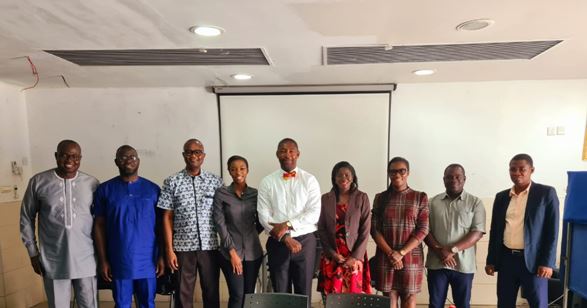The World Bank Group is offering Twenty-Seven Million, Seven Hundred Thousand ($27.7 M)to the National Health Insurance Authority (NHIA), to increase the National Health Insurance Scheme (NHIS) annual active membership, and facilitate Claims processing and payments for primary healthcare providers comprising CHPS, Health Centers and Maternity Homes under the Primary Health Care Improvement Program for Results (PforR).
The monumental program is financed through a World Bank facility with co-financing grants from the Global Financing Facility (GFF), Canada, the UK Foreign Commonwealth and Development Operation (FCDO), and the Gavi Alliance.
The program will be implemented for four (4) years, spanning from 2022 to 2025. The funding is allocated based on the Disbursement Linked Result (DLR) achieved per the Disbursement Linked Indicators (DLIs) of the program.
The DLis under the program include increase in the membership of the NHIS, increase in the enrollment of vulnerable populations in the Scheme and improvement in claims processing and payment for the primary healthcare facilities.
Under the facility, the NHIA in partnership with the Ministry of Health, Ghana Health Service, and the Health Facility Regulatory Authority (HeFRA) are to improve on relevant aspects of accreditation of healthcare providers, monitoring, and financing of primary healthcare services.

The NHIA and the Social Protection Directorate of the Ministry of Gender, Children, and Social Protection (MoGCSP) collaborative effort will boost the enrolment of indigent populations, such as the disabled, orphans, widows, women, and children in the Scheme.
This will be done through linkage with the National Household Registry which is also supported by the World Bank.
New NHIS Leadership Vision
The ‘New NHIS’ leadership’s ultimate goal is building a more resilient Health Insurance Scheme that responds to the needs of all by providing access to quality and affordable healthcare services on a sustainable basis.
The Executive Management’s strategy towards achieving Universal Health Coverage (UHC) is the adoption of ‘pro-poor pathway’ interventions fastened to the legal framework that every Ghanaian should register with the NHIS.
The Chief Executive, Dr. Bernard OkoeBoye, his deputies, and some Directors have completed a national tour of all 16 regions as a way of connecting with staff and the citizenry and discussed how to strengthen the NHIS and the role it plays as a vehicle for Ghana to achieve UHC.
Leadership is determined to open more offices in strategic locations to make the NHIS accessible to all. Some additional offices recently commissioned are the Western North Regional Office, Bono East Regional Office, Ahafo Regional Office, Dormaa East, Jamaan North, Asunafo North, Asutifi North, Obuasi, Asawase, Atwima Kwanwoma, Ejisu, Komenda Edina Eguafo Abirem (KEEA) Mion, Kumbungu, and Nanton.
Bono East, Sunyani Municipal, Jaman South, Kintampo Municipal, and Techiman Municipal have received newly branded operational vehicles.
Relevance
The NHIS has grown to become a major instrument for financing healthcare delivery in Ghana and it is the financial mainstay of over 4,600 credentialed healthcare service providers. Over 80 percent of the internally generated funds of most healthcare providers are from the NHIS.
The NHIS continues to provide financial access to many people who otherwise could not afford the cost of their healthcare services. Many are now seeking medical attention early and avoiding unnecessary deterioration in their medical conditions and possibly death as a result.








